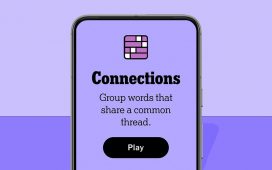from the addicted-to-addictions dept
Video game addiction. Sigh. Big sigh, even. Like, the biggest of sighs. We’ve talked about claims that video game addiction is a documentable affliction in the past, as well as the pushback that claim has received from addiction experts, who have pointed out that much of this is being done to allow doctors to get money for treatments of this affliction out of insurance companies. And, yet, everyone from some of the largest nations of the world down to individual hockey teams have glommed onto this addiction concept in an effort to yoink away any sense of responsibility or culpability from parents of these “addicted” children. And all of this is being done, mind you, in the context of a society that has absolutely adored blaming games of all kinds for all the world’s ills going back to the Bronze Age.
And into modernity, it seems, with video games now being the go-to scapegoat for everything from male impotence to every mass shooting that ever happens anywhere. It’s important to keep in mind that typically when you encounter someone “addicted” to video games, what is actually happening is that there is some other underlying affliction or condition that is at play, and the obsessive video game playing is a symptom, not the problem itself. Or, if you’re the parents of this 13 year old, you decide not to realize that at all and instead sue a bunch of game publishers over your own failure to parent your child.
The lawsuit, filed on October 30, states that that Microsoft, Epic Games, Activision Blizzard, EA, and others “use patented designs, algorithms and marketing containing addictive features and technology” leading to addiction. These designs and “addictive features”, the claim says utilized data collection of minors, predatory monetization schemes, and feedback loops to keep players more engaged.
“We never imagined when our son started playing video games that he would become so addicted that his education would severely suffer, he would lose all interest in spending time with his friends, and his physical and mental health would be at risk,” said Casey Dunn, the mother who filed the lawsuit on behalf of her child. “These video game companies have targeted and taken advantage of kids, prioritizing their profit over all else. As a mom, I knew I had to do something to ensure they don’t get away with destroying the wellbeing and futures of our children.”
Now, I’ll post the entire suit below this article, so that you can go and read it in its entirety if you would like. But, seriously…don’t. I did and it’s 129 pages and it’s an absolute mess. Before I pull a few specifics out of it and present them for discussion, let me give you a short analysis that drives home the point. The document could be made entirely true simply by doing a find and replace in which you swap out the word “addictive” for “entertaining” in most of the claims section. For instance, the opening includes the line:
By making their games addictive, Defendants maximize profits after the original purchase or free download.
If you swap the words suggested in that sentence, it’s the exact same story, but it’s not actionable legally. And you’re going to find that throughout the suit. It almost becomes a fun game. The suit claims that gaming companies seek to make as much money as they can from gamers by making games addictive. No, entertaining. The suit says that these companies have patents on systems specifically designed to make their games addictive to make more money. No, to make them entertaining. And then from there, it’s the usual nonsense about microtransactions and loot boxes and the like, all of which I too find annoying, but which aren’t actionable and certainly don’t amount to inducing addiction. So if you do go read this thing, just play the game along with me and count all the times you could replace “addictive” with “entertaining” while retaining the same point but in a way that you couldn’t sue over.
And then there are the sections in the suit that I absolutely must quote here. For starters, this sort of thing gets repeated several times in the suit.
Video game addiction impacts thousands of youths and their families across the country, including in Arkansas.
As best as I can tell, this statement comes without citation. The DSM5 does list Internet Gaming Disorder on its list of afflictions, yes, but that comes with a giant caveat on the page talking about how research and debate into whether this is a real disorder is ongoing and unsettled. We don’t even know if this is a real thing, in other words, and the burden of proving it is lies at the feet of those claiming so. As to the claim that this is impacting thousands of youths? Who knows where that came from. Anyway, moving on.
The child in this case, anonymized as G.D., is said to have experienced emotional distress, physical ailments, socialization deterioration, poor performance in school, dropping out of sports, rage, outbursts, diagnoses of ADHD and dyslexia, had to be put on an IEP in school, as well as medication to control his impulsivity. And that all sounds absolutely horrible. It also sounds at first blush that there may be a metric shit ton else going on with this child than can be explained by pointing to a video game controller. Or, as it turns out, multiple video game controllers.
G.D. played or plays the following video games: Fortnite, Rainbow Six, Battlefield, and Call of Duty. G.D. downloaded the games through Google Play and the Microsoft Store, and also plays through Xbox Game Pass Cloud Streaming. G.D. subscribes to and plays games on Xbox Game Pass Ultimate. G.D. currently plays games on his Xbox Series X, Nintendo Switch, and on his Android mobile phone.
So this young man became addicted to gaming on his Xbox. And his Switch. And the his Android phone. And presumably on his computer, given the mention of the Microsoft Store. Well gosh golly gee, that sure sounds like there are a lot of gaming machines in the house of this child apparently afflicted with an addiction to gaming. Have the parents ever tired, oh, I don’t know, taking away the gaming devices?
The suit goes into all the different ways that game companies seek to make money from games after purchase. Which, yeah, that’s sort of a thing in the modern gaming industry. And repeating over and over again that these companies are seeking to make as much money as possible isn’t particularly interesting. Of course they are, that’s what companies do. But on the matter of these monetization strategies:
Companies employ tactics specifically to gain heavy users-or ··whales” or “‘VIPs”-and to induce them into spending more money. For instance, when ·’whales” get stuck in the game, they are given a bonus to continue because it is better for the gaming companies to give them occasional free things than for the players to get fed up and stop paying.
“Give up and stop paying” is the exact sort of thing someone who is addicted cannot do. That’s not what addiction is. If you have a heroin addict, for instance, giving them the occasional free hit has no material effect on their addiction status once they are addicted. Sure, that can be a tactic to get them addicted, but not to keep them addicted. An person is either an addict or they are not. This appears to be an inadvertent instance of this suit telling on itself.
There’s more, but I don’t want to play the heavy handed polemicist here. And I don’t simply want to label this some kind of money-grab. It might be, but it might also be the case that we have two overwhelmed parents here who are looking to avoid the responsibility of parenting. Or perhaps they simply aren’t sure what to do, even at the level of taking the gaming devices away. The suit itself indicates this child plays video games roughly 13 hours a day. That certainly indicates that something is going on here on a psychological level and it must be horrible for the parents, whatever this lawsuit actually represents.
But singling out these parents to the tune of millions of dollars when there are millions of other kids out there gaming their time away without negative consequences certainly doesn’t make a lot of sense. Neither does blaming a form of entertainment for whatever is actually happening with this child.
Filed Under: addiction, video game addiction, video games
Companies: activision blizzard, ea, epic games, microsoft










